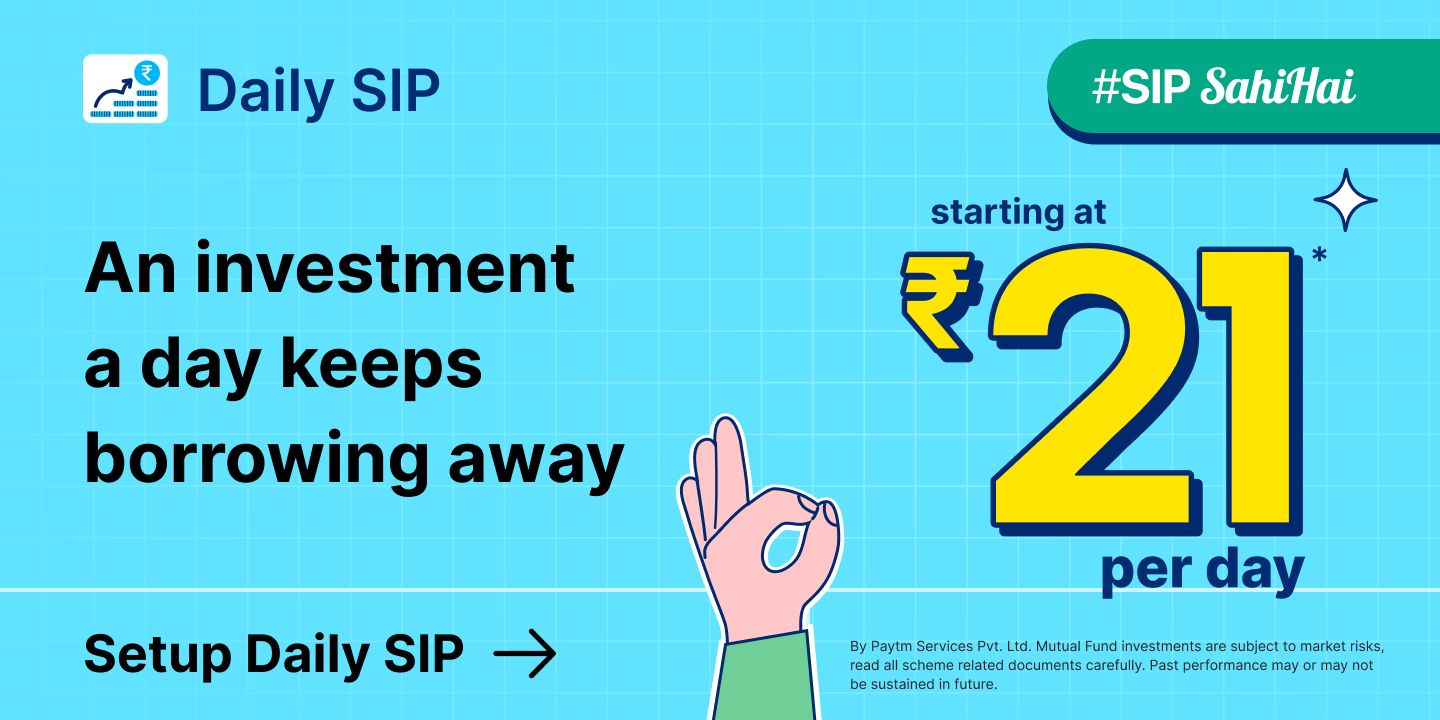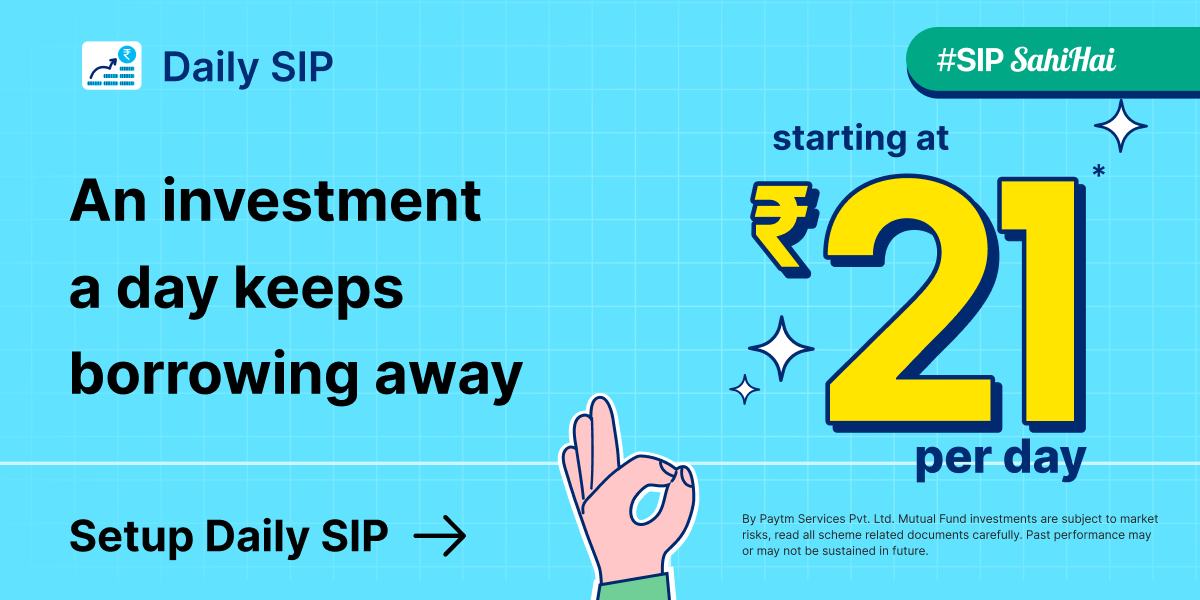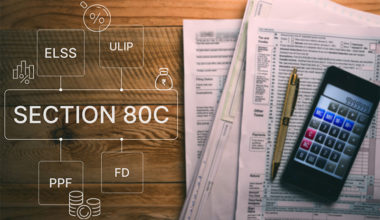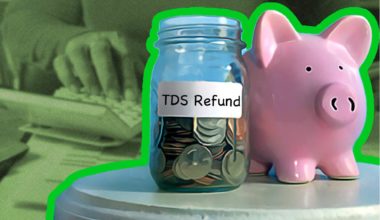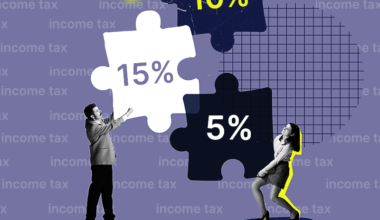A freelancer is a self-employed individual who offers his/her services to clients or businesses on a contract basis, rather than being an employee of a specific company. Freelancers are commonly associated with various industries, such as writing, graphic design, web development, photography, consulting, etc.
Since freelancers make earnings from the work they do, they are bound to pay taxes. This blog will explain all the details regarding income tax for freelancers.
Freelancing as Defined by Income Tax Rules
Freelancing is considered a form of self-employment, and income earned from freelancing activities is subject to income tax. The Income Tax Act of India treats freelancers as individuals engaged in a profession or business, and their income is classified under the head “Profits and Gains of Business or Profession.”
- Income earned from freelancing, whether it’s from providing services, consulting, or any other professional work, is treated as business income. As such, freelancers are required to file their income tax returns using the appropriate business income tax return form, which is usually ITR-3 or ITR-4.
- Freelancers are required to maintain proper books of accounts and records of their business transactions, including income, expenses, invoices, and receipts. Accurate record-keeping is essential for calculating taxable income and claiming deductions.
- Like any other business, freelancers in India are eligible to claim various business-related deductions to reduce their taxable income. Common deductions include business expenses, office rent (if any), office supplies, internet bills, travel expenses related to work, and any other expenses directly related to the freelancing work.
- Depending on the annual turnover of the freelancer’s business, they may be required to register for Goods and Services Tax (GST). GST is a consumption-based tax levied on the supply of goods and services, and freelancers must charge GST on their services and remit it to the government.
- Freelancers in India are required to pay advance tax, also known as quarterly tax payments, if their estimated tax liability for the financial year exceeds a certain threshold. Advance tax payments are made in installments throughout the year, and failure to pay them on time may attract penalties.
- The income tax rates for freelancers are the same as those applicable to individual taxpayers. The rates are structured in different income slabs, and the tax rates change from time to time as per the annual budget presented by the government.
- If the total turnover of a freelancer’s business exceeds a specified threshold (currently INR 2 crore as of my knowledge cutoff in September 2021), they may be required to undergo a tax audit as per the provisions of the Income Tax Act.
Taxation Rules for Freelancers in India
| Aspect | Details |
|---|---|
| Tax Treatment | Freelancing income is considered “Profits and Gains of Business or Profession.” |
| Filing Return | Freelancers must file income tax returns using ITR-3 or ITR-4, depending on their income sources and business structure. |
| Record-Keeping | Freelancers should maintain proper books of accounts and records of business transactions. |
| Tax Deductions | Freelancers can claim various business-related deductions to reduce taxable income. Common deductions include business expenses, office rent, office supplies, travel expenses, etc. |
| Goods and Services Tax (GST) | Depending on turnover, freelancers may be required to register for GST and charge GST on their services. |
| Advance Tax (Quarterly Payments) | Freelancers need to pay advance tax if the estimated tax liability exceeds a specified threshold. Payments are made in installments throughout the year. |
| Tax Slabs and Rates | Freelancers are taxed according to individual income tax slabs and rates. Rates change from time to time as per the annual budget. |
| Tax Audit | If the total turnover exceeds INR 2 crore (as of my knowledge cutoff in September 2021), freelancers may be subject to a tax audit. |
How much Tax is to be Paid by Freelancers on the Basis of their Income?
The amount of tax freelancers have to pay on their income depends on various factors, including their total taxable income, the applicable income tax slabs, and any eligible deductions or exemptions they can claim. In India, the income tax rates for individual taxpayers, including freelancers, are structured into different income slabs, each with its respective tax rate.
The income tax slabs for freelance taxpayers (below the age of 60) is as follows-
| Income Tax Slab | Old Tax Regime | New Tax Regime (until 31st March 2023) | New Tax Regime (From 1st April 2023) |
|---|---|---|---|
| Rs. 0 – Rs. 2,50,000 | – | – | – |
| Rs. 2,50,000 – Rs. 3,00,000 | 5% | 5% | – |
| Rs. 3,00,000 – Rs. 5,00,000 | 5% | 5% | 5% |
| Rs. 5,00,000 – Rs. 6,00,000 | 20% | 10% | 5% |
| Rs. 6,00,000 – Rs. 7,50,000 | 20% | 10% | 10% |
| Rs. 7,50,000 – Rs. 9,00,000 | 20% | 15% | 10% |
| Rs. 9,00,000 – Rs. 10,00,000 | 20% | 15% | 15% |
| Rs. 10,00,000 – Rs. 12,00,000 | 30% | 20% | 15% |
| Rs. 12,00,000 – Rs. 12,50,000 | 30% | 20% | 20% |
| Rs. 12,50,000 – Rs. 15,00,000 | 30% | 25% | 20% |
| More than Rs. 15,00,000 | 30% | 30% | 30% |
Additionally, a cess of 4% (Health and Education Cess) is applicable on the total tax amount.
To calculate the tax liability, freelancers should consider their total income, which includes earnings from freelancing activities, other sources of income, and eligible deductions (if any). Deductions can include business expenses, Section 80C deductions, health insurance premiums, and more. Here’s a simplified example to illustrate how tax is calculated for a freelancer in India:
Suppose a freelancer’s total taxable income after deductions is INR 8 lakh in a financial year.
- The first INR 2.5 lakh is tax-free (Nil tax).
- The next INR 2.5 lakh (from INR 2.5 lakh to INR 5 lakh) is taxed at 5%: 5% of INR 2.5 lakh = INR 12,500.
- The next INR 3 lakh (from INR 5 lakh to INR 8 lakh) is taxed at 20%: 20% of INR 3 lakh = INR 60,000.
Total tax liability before cess = INR 12,500 + INR 60,000 = INR 72,500.
Health and Education Cess @ 4% = 4% of INR 72,500 = INR 2,900.
Total tax liability after cess = INR 72,500 + INR 2,900 = INR 75,400.
How to File Income Tax for Freelancers?
- Visit the income tax e-filing portal (https://www.incometax.gov.in) and log in or register if you are a new user. Then, select the relevant ITR form, fill in the details accurately, and upload the XML file generated from your ITR preparation utility.
- After filing your ITR online, verify it using any of the available options: Aadhaar OTP, Net Banking, or EVC (Electronic Verification Code).
- Maintain a copy of your filed ITR acknowledgment (ITR-V) and all supporting documents for future reference.
- If you have any outstanding tax liability after accounting for TDS and advance tax payments, pay the remaining taxes online through the income tax e-filing portal.
Deductions for Income Tax Filing for Freelancers
Freelancers are entitled to claim various deductions while filing your income tax return. These deductions help reduce your taxable income, ultimately lowering your tax liability. Here are some essential deductions that freelancers can consider:
- Business Expenses: You can deduct expenses directly related to your freelancing business. This includes costs for office rent, internet bills, office supplies, travel expenses for work, professional memberships, and other necessary expenditures incurred while conducting your freelance activities.
- Depreciation on Assets: If you use any assets for your freelancing work, such as a computer or camera, you can claim depreciation on those assets. Depreciation is the wear and tear of the asset over time, and you can deduct a portion of its value as an expense.
- Professional Fees and Subscriptions: Fees paid for professional services, like hiring an accountant or lawyer, are deductible. You can also claim the subscription fees for professional journals and magazines relevant to your field of work.
- Health Insurance Premiums: If you have health insurance for yourself or your family, the premium paid is eligible for deduction under Section 80D of the Income Tax Act.
- Life Insurance Premiums: Premiums paid for life insurance policies are deductible under Section 80C, subject to a specified limit.
- Provident Fund Contributions: Contributions made to your Employee Provident Fund (EPF) or Public Provident Fund (PPF) account are eligible for deduction under Section 80C.
- National Pension System (NPS) Contributions: Freelancers can claim deductions on contributions made to the NPS under Section 80CCD(1B) over and above the limit of Section 80C.
- Home Loan Interest: If you have taken a home loan, the interest paid on the loan is eligible for deduction under Section 24(b) of the Income Tax Act.
- Donations: Donations made to eligible charitable organizations qualify for deductions under Section 80G.
Points to Conside while Filling Income Tax as a Freelancer
- As a freelancer, you’ll need to file your income tax return using the appropriate ITR form. The choice of form depends on the nature of your income and the business structure. Freelancers typically use ITR-3 or ITR-4.
- Collect all relevant documents related to your income as a freelancer. This includes details of your freelance projects, invoices issued, and any income received from clients.
- Calculate your total taxable income by considering all your freelance earnings, along with any other sources of income you may have. Deduct eligible expenses and deductions to arrive at your total taxable income.
- As a freelancer, you may be eligible for various deductions under Section 80C, 80D, 80G, and others. Ensure you claim all applicable deductions to reduce your tax liability.
- If your total turnover exceeds the threshold limit (currently INR 20 lakhs for service providers), you may need to register for GST. File your GST returns regularly as per the GST regulations.
- Obtain your Form 26AS from the income tax e-filing portal. It is a consolidated statement that reflects all tax-related information, including TDS (Tax Deducted at Source) and tax payments.
Conclusion
From registering your business and separating personal finances to keeping meticulous records and making timely tax payments, every step you take contributes to your financial success. Moreover, by taking advantage of deductions for business expenses, health insurance premiums, and more, you can significantly reduce your tax liability and keep more of your hard-earned money in your pocket.



